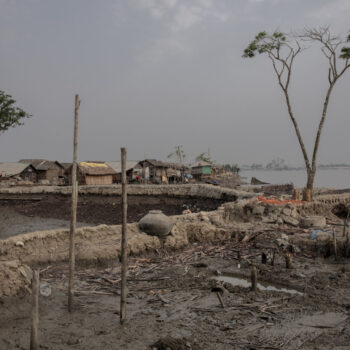The Transparency and Accountability Initiative (T/A Initiative) is a donor collaborative working to expand the impact and scale of transparency and accountability interventions. E3G was commission by the donor collaborative to identify where transparency and accountability could provide transformational outcomes in tackling climate change.
There has been much less attention paid to transparency and accountability in the field of climate change than in other areas, such as natural resource governance and donor aid. However, as the pressure to act builds and new financing for tackling and adapting to climate change comes forward, it is increasingly clear that transparency and accountability mechanisms are not only necessary but can also play a crucial role in promoting delivery of an effective response to this global crisis.
Gaps and Opportunities
Tackling climate change requires both ‘bottom up’ action and ‘top down’ action to help reduce the potential loss of human lives and livelihoods threatened by changes in the global climate. Countries need to demonstrate that it is economically feasible for them to change onto a low carbon, climate-resilient pathway. Government, civil society and the private sector must monitor and report on action that is being taken to mitigate and adapt to climate change and ensure that climate financing is being spent effectively.
Transparency and accountability lie at the heart of both processes and are critical to their success by rebalancing power, building trust and ensuring governments do not renege on their commitments.
This paper examines the major transparency and accountability trends in the climate change sector ranging from the changing role of emerging economies to the potential for corruption of new resources. It reviews the role of transparency and accountability in: national plans aimed to reduce emissions; deforestation and degradation; domestic climate change policy; trade and private investment and the carbon market.
By identifying gaps and opportunities in these areas, the paper recommends innovative ways for civil society to use transparency and accountability to deliver trust and high impact climate change outcomes across critical sectors, countries and forums. The authors propose that policymakers and practitioners move beyond environmental silos and reach out beyond the sphere of the public sector. This will mean tackling the fundamental incentive and power structures that perpetuate high carbon lock-in.


